|
Versión en español
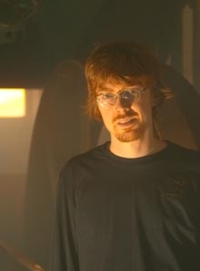
Danish-born composer Jesper Kyd (www.jesperkyd.com) writes and produces award-winning soundtracks for video games and movies. He is best known for the multi-million selling Hitman series starring Agent 47, and the epic action/adventure Freedom Fighters. His distinct blend of electronica, brooding symphonic and choral grooves in Hitman: Contracts garnered international critical acclaim as one of the truly groundbreaking original soundtracks and was awarded "Best Original Music" by the British Academy of Film and Television Arts at the 2005 BAFTA Games Awards. Kyd’s other projects include the cinematic movies for Tom Clancy’s Splinter Cell: Chaos Theory directed by Andy Davis (The Fugitive, Under Siege, Collateral Damage). His upcoming titles include the epic fantasy The Chronicles Of SpellBorn and the highly anticipated Hitman: Blood Money (www.hitman.com), featuring a live orchestral score recorded with 150 musicians from the Budapest Symphony Orchestra and Hungarian Radio Choir.
BSOSpirit (BS): Allow me to start this by thanking your
kind predisposition regarding this interview. It is indeed a pleasure to
talk to you.
Jesper Kyd (JK): It’s my pleasure.
BS: So here comes my first question: How did grow this particular concern for soundtrack music, and video-game scoring?
JK: Playing games on the C64 and listening to the fantastic music created for these games is where the love for video game music started. I thought the C64 music was better than the games and couldn’t wait to see where the video game technology would go. So I did everything I could to become part of the game industry and help shape the next generation of music for video games.
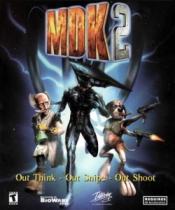 BS: Your first request was MDK 2. How did you get involved in such project?
JK: I met with BioWare at E3 and we had a great meeting. They were looking for something really different so we talked about combining the orchestra sound with electronic elements. Once BioWare decided to hire me I worked with them and Interplay to come up with the soundtrack.
BS: Did you harvest any pleasant experience, any lesson or anecdote, working for MDK 2?
JK: MDK 2 was a project with a very tight deadline, so I didn’t have as much time as I would have liked to work on the score. Working with Albert Olson was great creating the music for Kurt’s character.
BS: Night All Day was your first work for the big screen. Please, tell us about this experience.
JK: I wrote more than 2 hours of music and worked about 6 months on this score. It was a massive effort as it is one of those thriller type movies with music playing almost all the time. It was entertaining and I learned a lot working with the director Basil Schlegel.
BS: In year 2000 you met Hitman, and then you deepen into a very enriching and creative universe... It was always the same character in every adventure, but you gave your music a very distinct shift on each occasion. What was for you the most fascinating thing about Hitman?
JK: I was fascinated with the fact that the Hitman games could be played as an action and stealth game. Most games around that time were more action-based and I loved the challenge of scoring for a stealthy atmosphere. The story in Hitman is also something cool and writing music for an epic storyline like the ones following Agent 47 is a lot of fun.
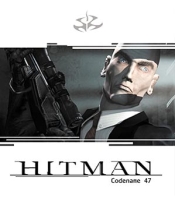 BS: Were you really free to create your own musical ideas for Hitman: Codename 47, or did you follow any suggestion made by other crew people?
JK: For the first Hitman I had to contend with the constraints of the platform music system, which was called Direct Music. Basically, it allows for very interactive, smooth music changes in-game, but it’s a very different writing method compared with CD based music. There were some limits with this music system; the main problem being memory issues. I had a certain amount of RAM to work with and I created a set of music instruments for each level that I would put into Direct Music. As far as style goes, the combination of ambient and cinematic music was my instinctive decision early on, with agreement from the producers.
BS: In Hitman 2: Silent Assassin music seems to be totally changed, your score opens to more exotic influences -Asian, Arab, Hindu, whatever-, although this is still considered one of your most genuine works. Why did you shift to, let’s say, a more “cinematographic” cliché in this particular score?
JK: Hitman: Codename 47 was a very
hardcore game experience that suited the more hardcore gaming crowd,
and the Hitman 2: Silent Assassin score was created
to fit with the more mainstream appeal of the new Hitman. Hitman
2: Silent Assassin was also released on consoles for the first
time and the storyline and gameplay had been tweaked significantly and
made more appealing to the casual gamer. Whereas Hitman: Codename
47 was a more underground hit, Hitman 2: Silent Assassin was
designed to be a bigger, more refined Hitman. The success
of Hitman: Codename 47 allowed us to record with a
live symphony orchestra and it was our intention from the beginning
to work with the Budapest Symphony to perform the score.
BS: 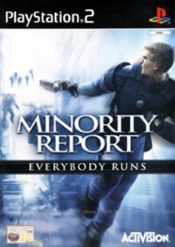 You scored Minority Report -the video-game. Did someone ask you to follow John Williams’ steps in the previous film by Steven Spielberg? You scored Minority Report -the video-game. Did someone ask you to follow John Williams’ steps in the previous film by Steven Spielberg?
JK: No, I was asked to come up with a completely different score. The film is more thriller-style music and the game is all-out action, all of the time. My Minority Report score was an action-driven electronic score mixed with lots of dance beats.
BS: Did you contact any crew member from Minority Report -the film- for scoring that video-game?
JK: The game team and I worked separately on the game from the film makers. The game does not follow the atmosphere of the film that closely, since as mentioned above, the game is quite a different experience.
BS: Any anecdote to be remembered about this blockbuster scoring project?
JK: I had a lot of fun writing sci-fi dance/action music. The violent nature of the game allowed me to really put together some intense music.
BS: I personally think that "Freedom Fighters" is one of your finest works. How did you get involved in such project?
JK: After Hitman 2: Silent Assassin, the producers at IO approached me with their next concept called Freedom Fighters. I put a lot of planning and thought into this score and suggested we use cinematic electronic music with live choir. IO liked the idea and that’s how the score got started.
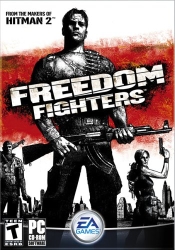 BS: Was it a good experience to work together with the Hungarian Radio Choir?
JK: I love working with the Hungarian Radio Choir. I have worked with them many times since Freedom Fighters, on scores such as Robotech: Invasion, Hitman: Contracts, the upcoming Hitman: Blood Money (www.hitman.com) as well as the aforementioned Hitman 2: Silent Assassin.
BS: They say that working with a chorus is always more complex than doing so with an instrumental orchestra... A more challenging thing. Do you agree?
JK: A choir is more like one instrument that has this awesome power to it and so control and arrangement can certainly be a challenge at times.An orchestra has many different kinds of sounds that can be mixed together and it’s all about finding a balance. Choir scores mixed with electronics are not easy, since there is hardly any music to reference to. You almost have to make things up as you go along and be very specific about the vision you have for the music.
BS: Do you remember any funny thing about the recording of Freedom Fighters?
JK: Well, it was nerving to only have the electronic tracks to listen to while recording because if there were any problems with the electronic music we would not be able to fix it there. When recording with an orchestra you have much more leeway and can change things on the fly if need be. It was great mixing dance beats with the choir. The reaction of the classically trained choir when asked to sing on top of dance beats was great. We were all doing something we hadn’t done before, and those kinds of experiences are rare and wonderful.
BS: As a European, you must have been in conflict with the plot of Freedom Fighters... A patriotic portrait of American troops fighting against the evil, red Russian army domain. Were you comfortable in writing music for this sort of epic, or did you look at it as if it was just a fable about the eighties?
JK: I wrote the score right after the tragedy of 9/11; I wrote it in Manhattan where I lived until moving to LA recently. So I didn’t have a problem with the concept, I just saw myself as a Freedom Fighter running around the streets outside my studio defending what at the time was a real attack on New York City. That’s how I channelled some of my emotions to what was going into my music. I also played the game A LOT and that helped me step into the shoes of the main character, Christopher Stone.
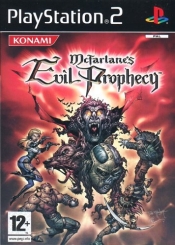
BS: You were great again in Evil
Prophecy, sharing a unique universe inspired by famous artist "Spawn" Todd
McFarlane. How did you come to work for this project?
JK:
Konami asked me if I would be interested in writing a dark
gothic score for Evil Prophecy. The monster characters
created by Todd McFarlane are awesome and I wanted to be part of the
video game adaptation of these great identities.
BS: Did you exchange any esthetical ideas or impressions with Todd McFarlane?
JK: No, he was just involved with the character design, and the content of the game was created and designed by the producers at Konami.
BS: Will there be any CD with this edited score in the market some time?
JK: I’m not sure. If Konami will allow the release of a soundtrack it could very well find a release. I wrote about 60 minutes of music so a CD release makes sense.
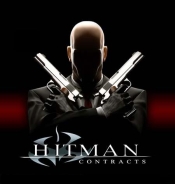
BS: Last year you went back
to Hitman, with Contracts. Here you
choose to work with electronic sounds, a techno atmosphere. Why such
a big change after the orchestral based score of Silent Assassin?
JK:
Hitman: Contracts indeed has a very different atmosphere than Hitman
2: Silent Assassin. Gone are the epic landscapes and storytelling,
and instead we are introduced to a dark psychological storyline, where
Agent 47 drifts in and out of consciousness in a drug-induced state.
It’s a very dark game, literally, since the game takes place only
at night. It’s by far the most disturbing episode in the series
and so a traditional orchestral score would not work with this game.
The music had to be listenable and enjoyed over repeated playing – a
contemporary electronic musical interpretation, which also went back
to the game’s roots, was the most appropriate for the setting
and mood of the game.
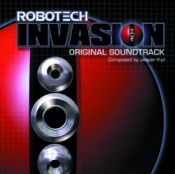 BS: Robotech: Invasion bring you in a very rich and overloaded universe, with an amazing history behind. Were you a Robotech fan?
JK: I had seen Robotech in the 80's and remembered the awesome storyline and visuals. I was asked to write a completely new score for Robotech: Invasion and NOT use the original 1980s music as an inspiration. So while I did watch quite a bit of Robotech to get familiar with the franchise again, I didn’t pay too much attention to the TV show soundtrack. I read a lot of Robotech comics, especially the Robotech: Invasion series, because of the close relations these comic books had with the game.
BS: How would you describe your music for this work?
JK: Cinematic, sci-fi music. And it’s very modern, since it’s mostly electronic blended with elements of the orchestra. Whereas Freedom Fighters was more orchestral in nature, this score mixes the choir with more electronic-sounding music.
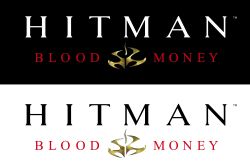 BS: Hitman: Blood Money is your latest work with this character, who seems your voyage companion. What differences can we find between this score and the rest of Hitman's scores?
JK: This score is more epic than Hitman: Contracts and less action-based than Hitman 2: Silent Assassin. I wanted to create a score that could play often, not only for big action moments or key puzzle solving moments. I like the way the Hitman: Contracts is able to sit and play the 12-14 hours it takes to complete the game, without getting repetitive. This is a hard balance to achieve in order to create the most immersive experience, and I wanted to find this special blend for the Hitman: Blood Money orchestral score. The score has about the same amount of orchestra music as Hitman 2: Silent Assassin, but also has lots of electronic music.
BS: Tell us about your last two movie scores: Death of a Saleswoman and Stranger.
JK:Death of a Saleswoman is a comedy about a small town murder and follows the detective trying to solve the murder. I just finished Stranger, which is a horror film that has plenty of graphic death and brutal murder scenes. While the Saleswoman score is a more light-hearted orchestral score, the music for Stranger is darker and evil. Stranger is also an orchestral score with lots of percussion and atmospheric elements.
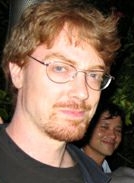 BS: In the next future do you work simultaneously in films and videogames scores, like now, or do you think you will jump definitely to film music, like Michael Giacchino did?
JK: I have no plans to leave games behind, since I am having so much fun and enjoy the creative freedom associated with writing music for games. I intend to continue scoring both games and films. In some ways, film is a very different medium to work in but I like the synergy it brings when writing game scores.
BS: At last but not least: Any dedicated words for your fans in sunny Spain?
JK: I hope you enjoy the next Hitman!
BS: Thanks very much Jesper, it has been an enormous pleasure talking to you.
JK: Thanks for the opportunity!
Jesper Kyd's official website: www.jesperkyd.com
Interview made by David Doncel
Transcription by Jordi Montaner
|





